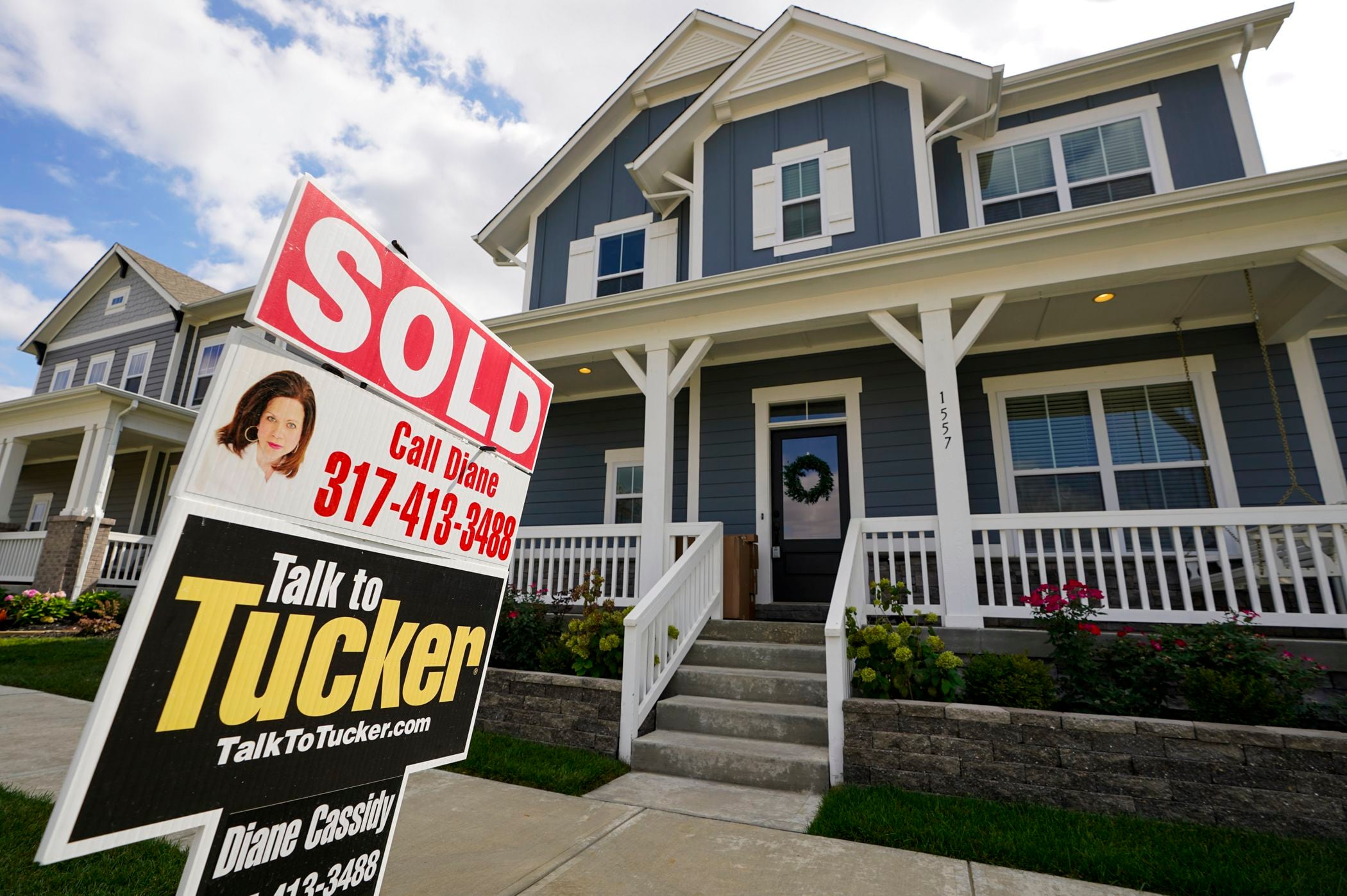LOS ANGELES (AP) — The average rate on a 30-year mortgage dropped this week to a four-month low, a welcome decline in borrowing costs for prospective homebuyers grappling with the challenge of record-high home prices and a dearth of properties on the market.
The rate fell to 6.77% from 6.89% last week, mortgage buyer Freddie Mac said Thursday. A year ago, it averaged 6.78%.
This is the second straight weekly drop in the average rate. It's now at the lowest level since mid March, when it averaged 6.74%.
“Mortgage rates are headed in the right direction and the economy remains resilient, two positive incremental signs for the housing market,” said Sam Khater, Freddie Mac’s chief economist.
Mortgage rates are influenced by several factors, including how the bond market reacts to the Federal Reserve’s interest rate policy and the moves in the 10-year Treasury yield, which lenders use as a guide to pricing home loans.
After jumping to a 23-year high of 7.79% in October, the average rate on a 30-year mortgage has mostly hovered around 7% this year — more than double what it was just three years ago.
The elevated mortgage rates, which can add hundreds of dollars a month in costs for borrowers, have discouraged home shoppers this year, extending the nation's housing slump into its third year. Sales of previously occupied U.S. homes fell in May for the third month in a row, and indications are that June saw a pullback as well.
Mortgage rates have eased recently as signs of cooling inflation have heightened expectations that the Federal Reserve will cut its benchmark rate in September. The central bank has been keeping its main interest rate at the highest level in more than two decades in hopes of slowing the economy just enough to get inflation fully under control.
Home loan rates have eased as the yield on the 10-year Treasury note, which topped 4.7% in late April, has moved lower on hopes of a Fed rate cut. It was at 4.17% in midday trading in the bond market.
Mortgage rates could ease further in coming weeks if bond yields continue declining in anticipation of a Fed rate cut.
Even so, most economists expect the average rate on a 30-year home loan to remain above 6% this year. That may not be enough of a decline to entice home shoppers who have been holding out for mortgage rates to come down, nor persuade homeowners who have locked in rock-bottom rates that it’s a good time to sell.
“While lower rates will eventually bring more buyers back into the market, there are other factors that are causing buyers to hesitate,” said Lisa Sturtevant, chief economist at Bright MLS. “Home prices have hit record highs in many markets, which will keep some buyers out of the market.”
The recent pullback in home loan rates did help spur a pickup in mortgage applications last week. They rose 4% from a week earlier, according to the Mortgage Bankers Association. That increase included a 15% jump in applications for home refinancing loans, which reached the highest level since August 2022.
Borrowing costs on 15-year fixed-rate mortgages, popular with homeowners refinancing their home loans, fell this week, pulling the average rate down to 6.05% from 6.17% last week. A year ago, it averaged 6.06%, Freddie Mac said.









